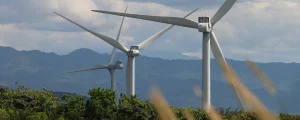Opportunities and challenges
As one of the world’s most competitive, innovative, and linked regions, as well as a leader in the global energy and climate transition, Europe is well-positioned to capitalise on the one-of-a-kind opportunity given by the rapid rise of clean energy technology markets.

Investing in clean energy technologies is critical not just for retaining the EUS industrial leadership and creating new jobs, but also for ensuring Europe’s energy security in the future.
The recent energy crisis was a blatant reminder of the risks associated with excessive dependence on one supply chain, in this case, Russian fossil fuels. The creation of local production capacity and various supply chains of clean energy technologies Europe allows to avoid creating new consequences for clean energy technology while replacing the subordination of past fossil fuels.
Although these potential are considerable for Europe, they exist in a highly competitive worldwide market. Countries around the world, including the EU, are actively chasing prospects in the clean-tech market. Major economies such as the United States, India, China, and Japan are heavily investing in green innovation, which, while advantageous, increases competitive pressures.
Currently, the EU imports more net-zero energy technology than it exports, endangering industrial and technical reliance. For example, China supplies 98% of the EU’s rare earths and 97% of its magnesium, Chile supplies about 80% of its lithium, and the Democratic Republic of Congo provides more than 60% of its cobalt. In 2022, Chinese enterprises provided at least three-quarters of worldwide capacity at all stages of the PV supply chain.
While EU production capacity for other technologies, such as heat pumps, is expected to cover 75% of total EU demand for individual hydronic heat pumps by 2021, EU manufacturers continue to rely on imports for components, which are primarily imported from China, South-East Asian countries, and the United States.
EU solutions
In order to fulfil its climate neutrality goals and avoid supply chain over-dependence in the face of changing and complicated geopolitical dynamics, the EU must address domestic concerns such as high energy prices, essential raw material supply chain disruptions, and skills gaps.
Net-zero technologies and essential raw materials
The Net-Zero Industry Act is a crucial piece of EU legislation that was presented by the Commission as part of the larger Green Deal Industrial Plan in March 2023 and approved by the Council and the European Parliament in February 2024. Its goal is to enhance the flexibility and competition of important pure-zero technologies in the European Union, while also to create appropriate conditions to attract investment.
The Net-Zero Industry Law seeks to allow the European Union to manufacture 40 Percent of the annual publishing needs of Net-Zero technologies by 2030, as Europe hosted 15 Percent of global manufacturing by 2040.
Competitiveness progress reports:
Since 2020, the European Union issued annual progressive reports on the competitiveness of sustainable energy technologies. They evaluate current and expected playing cases with the aim of directing political procedures and improving competitiveness.
The 2023 report found that despite the rising energy and physical costs after the energy crisis, the cost of clean energy technologies in 2022 remained highly competitive, resulting in a 50% in the rate of air and solar roll-out compared to the European Union. Increased, last year.